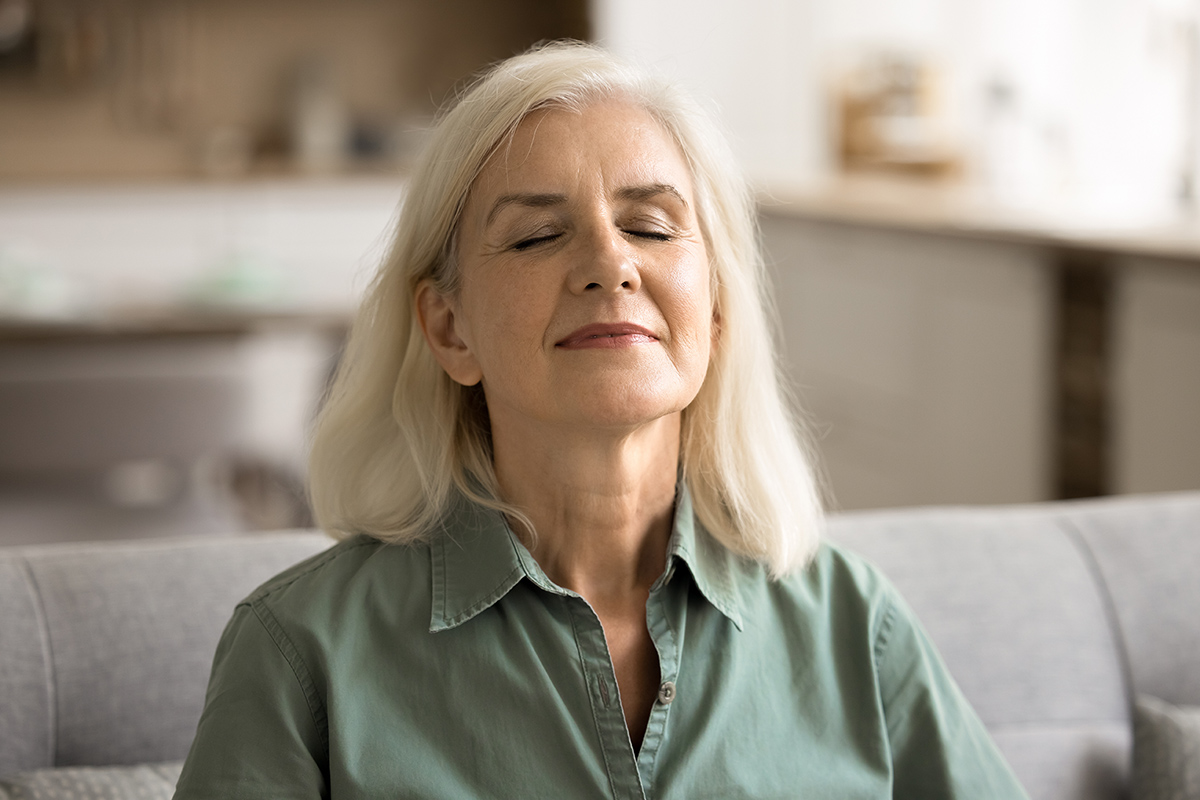Clair shares how dips in her mental health before her period worsened in her late 30s, and how she knew her hormones might be to blame
Content advisory: this article contains themes of mental health and suicide
I am 44 years old now, and my mental health has always been a bit of a struggle at times. In my 30s, I began to notice quite a significant change in my symptoms around my menstrual cycle. I have been taking citalopram (an antidepressant) on and off for a number of years, to help control symptoms of anxiety and depression.
As I approached 40, I began to find the premenstrual symptoms more and more difficult to control. I frequently felt suicidal in the lead up to my period and would have intrusive thoughts that I found quite distressing.
I am a GP and have a special interest in women’s health, perimenopause and menopause. I have also learnt a lot from my patients, so I tried to work out how to best manage my own symptoms. I knew of the National Association for Premenstrual Syndrome’s (NAPS) Guidelines on Premenstrual Syndrome and I followed this structured guideline in order to try to help manage my symptoms.
I took red clover, agnus castus, vitamin D, calcium and magnesium. I’d had CBT, and I tried to address factors in my lifestyle. I did see a little improvement but was still finding that in the lead up to my period, suicidal thoughts were commonplace. The next step on the guideline was to try cycle suppression, which is using medication to stop my periods and avoid the resulting fluctuations in my hormone levels.
Although I have great faith in my GP, I felt more comfortable discussing my options with a menopause specialist. It felt very exposing to talk about such personal issues, and although I know how important it is to discuss mental health issues (and would encourage my patients to do so), it feels very different when you are the one having to approach talking about these matters, in order to help yourself.
RELATED: Am I depressed or menopausal?
I arranged an appointment at a private menopause clinic, explained my symptoms to the specialist, and said that I wanted to try hormone replacement therapy (HRT). She was excellent and agreed that HRT may help me. She prescribed Oestrogel and Utrogestan capsules and it has honestly been life-changing for me. They fit so nicely into my daily routine, and were very easy to use.
My symptoms began to improve very quickly and even in the first cycle, I noticed I felt much better in the lead up to my period. The intrusive suicidal thoughts really eased, and I couldn’t believe what a difference the HRT had made.
Over the next few months, I increased my Oestrogel until I felt my symptoms were under as much control as they could be. I am now using four pumps of Oestrogel and this has continued to be effective for me.
I initially used sequential oral Utrogestan but now use a continuous regimen of 200mg every evening, which has stopped my periods and is working very well. I have also added testosterone, which I feel has really helped ease my remaining anxiety symptoms.
My GP has been very supportive and took over prescribing the Oestrogel and Utrogestan, which was brilliant, and I still continue to take Citalopram. This treatment combination has helped me to feel well, establish a lifestyle routine that works, and develop strategies that help me manage during more challenging times.
RELATED: Antidepressants and menopause
It is absolutely vital that the impact of perimenopause and menopause on our mental health is recognised. I was fortunate enough to realise that my changing hormones is what could have been making my symptoms worse and I was able to access the right treatment. Had I not had this awareness and means to see a menopause specialist, who knows what the outcome may have been?















